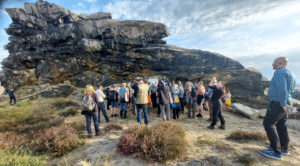Project 2513 sy: Training Researchers in Core Analysis with Scanner XRF for South America (TRAC-XSA)
Abstract
The climate of South America is highly complex, influenced by phenomena like El Niño-Southern Oscillation (ENSO) and the Southern Annular Mode (SAM), which impact precipitation and temperature across the continent. Sediment cores from lakes, peatlands, marine, and fjord environments serve as valuable archives for understanding long-term climate variability. X-ray fluorescence core scanning (XRF-CS) is a non-destructive technique that provides high-resolution geochemical data, aiding in paleoclimate reconstructions. Despite its global relevance, South America has historically lacked access to XRF-CS technology, limiting research output compared to the Northern Hemisphere. The recent acquisition of XRF-CS equipment at the University of Concepción, Chile, offers an opportunity to bridge this gap, fostering collaboration, knowledge exchange, and capacity building among researchers, particularly Early Career Researchers (ECRs) and Developing Country Researchers (DCRs). This initiative aims to reduce disparities in Quaternary studies between the Global North and South while promoting inclusivity and diversity within the scientific community.

Objectives:
- To enhance technical skills in XRF-CS for high-resolution geochemical data analysis,
- To promote collaboration among researchers across South America,
- To generate geochemical data to improve understanding of climate variability and enhance climate models,
- To ensure equitable participation across diverse disciplines, genders, and countries
Project leaders:
- Roberto Urrutia – Universidad de Concepción, Chile
- Denisse Álvarez – Universidad Santo Tomás, Universidad de Concepción (UdeC), Chile
Latest developments
View moreLatest developments Podcast INQUA India 2027
Podcast INQUA India 2027Quaternary is the age when modern recognisable humans started inhabiting this planet. All over the world scientists are engaged in studying various aspects of human evolution. Once every 4 years scientists from all across the…
 PALCOM-supported sessions
PALCOM-supported sessionsINQUA PALCOM interactive bulletin of scientific sessions for the INQUA Congress 2027
 New QP Issue Out!
New QP Issue Out!QP Issue 39 December 2025 is now available online!
 INQUA 2025 Sir Nicholas Shackleton Medal
INQUA 2025 Sir Nicholas Shackleton MedalThe INQUA 2025 Sir Nicholas Shackleton Medal recipient is Prof. Dr. Nicole Khan from the University of Hong Kong (Hong Kong)
 7th International Palaeontological Congress – IPC7
7th International Palaeontological Congress – IPC7The 7th International Palaeontological Congress (IPC7) will be held between 30 November – 3 December 2026 in Cape Town, South Africa
 4th International Conference Polar Climate and Environmental Change in the Last Millennium
4th International Conference Polar Climate and Environmental Change in the Last MillenniumThe 4th International Conference Polar Climate and Environmental Change in the Last Millennium will be held in Toruń on August 28–30, 2026


